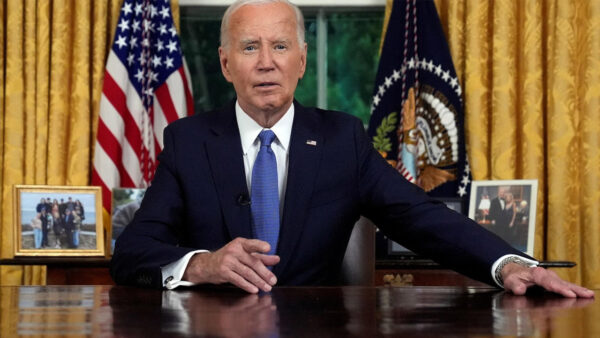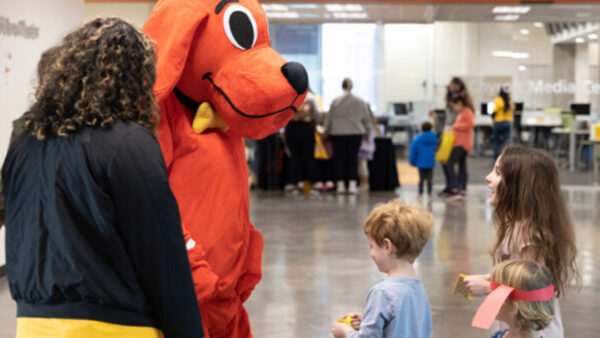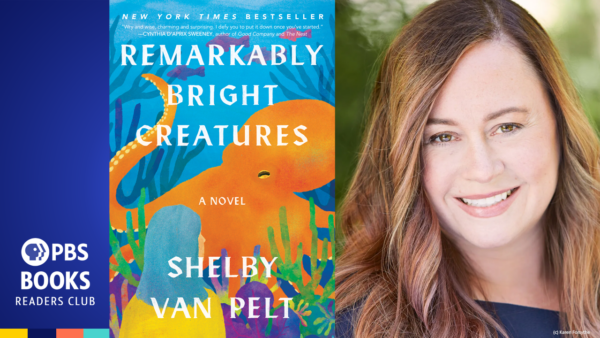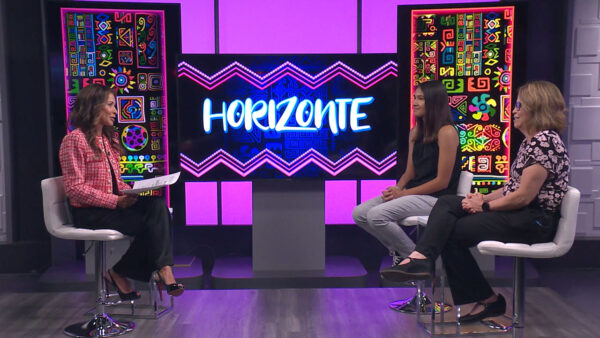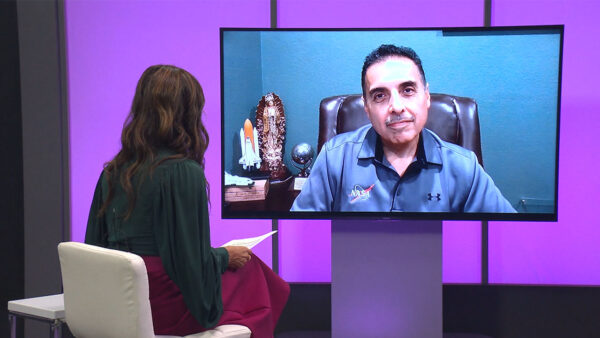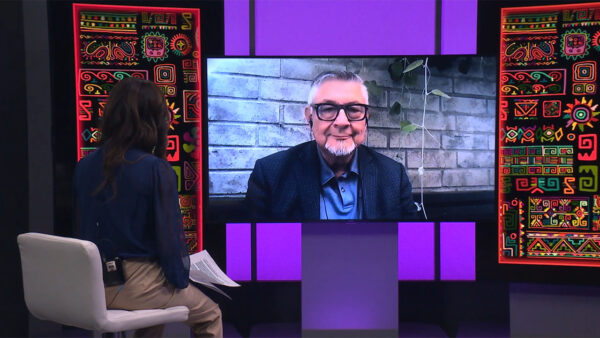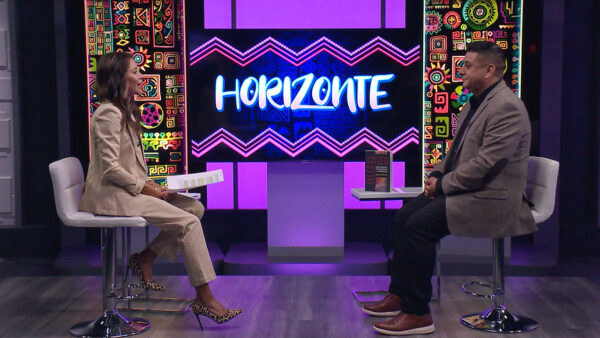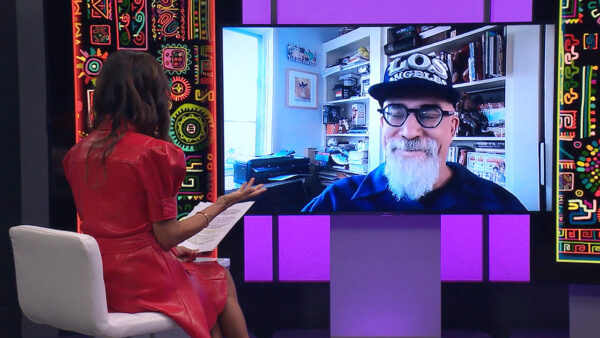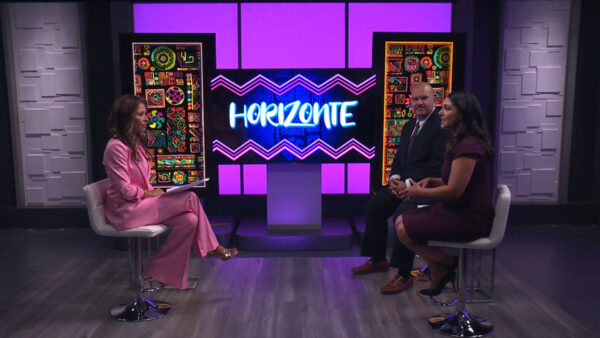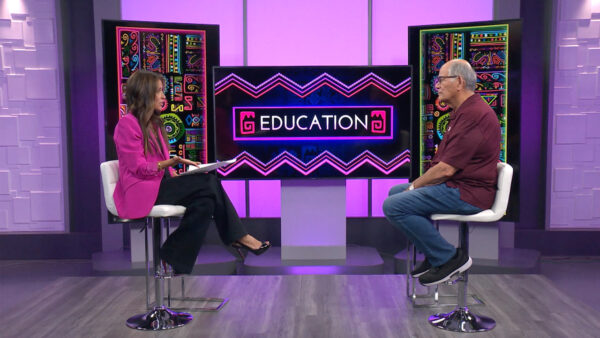Teatro Bravo produces English and Spanish plays that promote a complex portrait of U.S. Latino/Latin American populations in Arizona.
Artistic Director Guillermo Reyes discusses the theater’s previous productions and their importance to Latino arts.
Jose Cárdenas
>> the valley theater scene has been enriched in productions in English and Spanish. Tackling various subjects. Here to talk about it is Guillermo Reyes, associate professor at a.s.u.'s school of theater. Welcome to "horizonte."
Guillermo Reyes
>> thank you for having me.
Jose Cárdenas
>> 10 years now of teatro bravo?
Guillermo Reyes
>> yes, it's been 10 years.
Jose Cárdenas
>> tell us the inspiration.
Guillermo Reyes
>> the inspiration was that I had just come from Los Angeles, where I did this type of theater, neighborhood theater, community theater that pertained to the Latino community. When I came here there wasn't such a theater. I thought phoenix was a great place to be able to do that. My associates at phoenix college and a graduate student here, we decided to make it happen. So we started a theater company, and in the year 2000 we did culture clash, and we did a comedy that had a great reception here. And so we started with that, and we have been doing it since.
Jose Cárdenas
>> so you came from a city, Los Angeles, that has a great tradition in Spanish language theater, and bilingual theater, to phoenix, which as you describe it, had none, at least at that time. Any surprises?
Guillermo Reyes
>> well, I was surprised that people came, as much as -- as many as they did. I wasn't sure what to expect. We wanted to be cautiously optimistic, but I think our first show was a great hit, and I think that's what launched us. And I'm glad we were able to do that. I'm not sure I was surprised in any negative way. I was just delighted to see that there is an audience for Latino theater and for bilingual theater here in the valley, and that's something that I was doing before, and I will continue to do as well.
Jose Cárdenas
>> you were the only one at the time. Has that changed?
Guillermo Reyes
>> it has, because we've had growth in a lot of community theaters. One theater was founded by a former student of mine, James Garcia. He is a playwright, and he directs and acts, and he's doing what I have been preaching, in other words, he's, I like to believe he learned from me, but he has his own resources, he's an intelligent man, and his wife Julie is a playwright. So they're doing their own thing, and I hope that we work together as a Latino community.
Jose Cárdenas
>> is there anything that makes Spanish language theater or bilingual theater unique? Other than the language?
Guillermo Reyes
>> well, I think that we're dealing with not simply language, but we're dealing with multiple sensibilities. Language affects that, but the there's nationality, there's the way people interpret their reality. And so when we do a play such as blood wetting in Spanish, you're bringing a sensibility - were bring sensibility that is very Spanish influenced by gypsy culture, but when we're doing a play such as women, the women of Juarez, that play is a very contemporary play about issues that affect the Latino community. And for instance, that play, the women of Juarez, is an issue that reached a lot of people. But I wouldn't say that my Angelo friends would have known about women of Juarez if it hadn't been for that play. We did it in English, and it was able to reach that audience as well. We're dealing with multiplicity of not only languages, but cultures and nationalities and that I think enriches the theater, but it is complex and difficult.
Jose Cárdenas
>> and even within one language or culture, quite a diversity of offerings, you go from a Spanish playwright to the women of Juarez, which would be focus more contemporary situation. How does that impact the kind of audiences that you attract?
Guillermo Reyes
>> I would say the women of Juarez, obviously attracts a Mexican or Mexican American community, also women's groups were affected by that. They came in various, in great numbers. But teachers who teach Spanish, they've gone to the plays. Americans learning Spanish as well as Latinos who are native speakers, and professors and so it's a different sensibility and a different type of audience. Every play we do will differ. The audience all depends on the type of play.
Jose Cárdenas
>> you published a number of your plays. You've got a book with several of them that was published.
Guillermo Reyes
>> yes. He's also our executive producer. And these are plays that we have produced. All of them. So we called it borders on stage, because they all deal in one way or another with issues of borders. Whether it's literally cross borders, or cultural borders that people face.
Jose Cárdenas
>> some of those borders seem to have -- or be more difficult to cross. For example, you mentioned a play involving gay actors or that was the theme. And yet your play, men on the verge of a Spanish breakdown, the reaction you got in New York was too much Hispanic, and let's tone that down. Other issues that might be considered controversial, like homosexuality, that was fine?
Guillermo Reyes
>> in New York it was fine. But apparently the title, man on the verge of an Hispanic breakdown, gave the audience a sense that it was too ethnic, that it wouldn't cross cultures, that some people would be turned off by that. So they would be turned off more by the ethnicity than the sexual identity of the themes, and so I thought that was an interesting cultural factor that producers have to consider. But we couldn't really -- we couldn't change the title because the title is a spoof, or a play on words on the film "women on the verge of a nervous breakdown." and in my case it was "man on the verge of an Hispanic breakdown." you if take that out, do you away with the humor of it.
Jose Cárdenas
>> well, what about some of your more recent works that also have an immigration theme? Those illegals, not -- "los illegals."
Guillermo Reyes
>>that was a play by a los angeles-based playwright. He works with the community there, he actually used day laborers, integrated them into a cast with professional actors. So they worked together to create this piece about day laborers in California, and when I saw it in los angeles, I thought it looked like communities here. Only a few blocks away from where I live on 36th and Thomas, we had all these demonstrations outside of the furniture store, for instance, both anti and pro immigration, and quite a spectacle. And that's what the play reminded me of. So when we brought it here, it was for that particular reason.
Jose Cárdenas
>> for that particular reason did it also resonate with the audiences here?
Guillermo Reyes
>> definitely. It did very well. And it was a bilingual play. So you had a real interesting challenge in that you had communities from both Spanish speaking and English speaking communities and students who sometimes didn't speak Spanish.
Jose Cárdenas
>> we're almost out of time. I want to make sure we talk about your upcoming production.
Guillermo Reyes
>> little queen is a comedy, and it is one of our most light hearted comedies, but it has a lot of the social issues. Teenagers goes to the Oscars. That's the short version of what that's about. But how he gets there and the social obstacles he has to overcome are an important part.
Jose Cárdenas
>> when will it be out?
Guillermo Reyes
>> May 22nd in downtown phoenix.
Jose Cárdenas
>> when we talk about a production like that, give us a sense for the size and the complexity of it.
Guillermo Reyes
>> it's got five local actors, it's in English in this case, and it's a very intimate play. It's done at the playhouse in the park, which only has about 200 seats, so it's a fairly intimate experience. It's a comedy, it's a social realism, and I think that it's a play that can be enjoyed by everybody.
Jose Cárdenas
>> I'm sure we will enjoy it. And look forward to further productions from theatre bravo.
Guillermo Reyes
>> thank you.
Guillermo Reyes:Artistic Director,Teatro Bravo;
